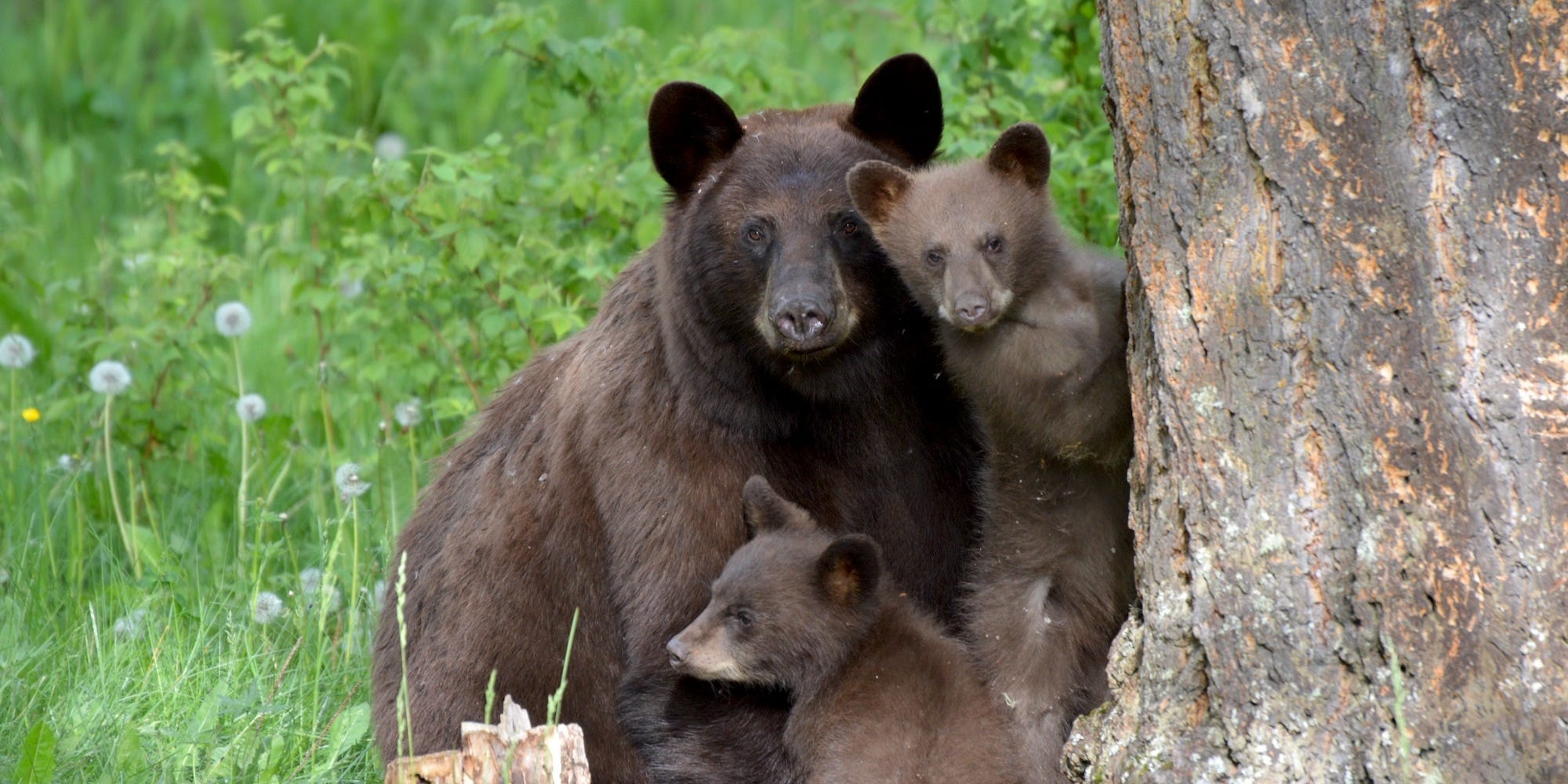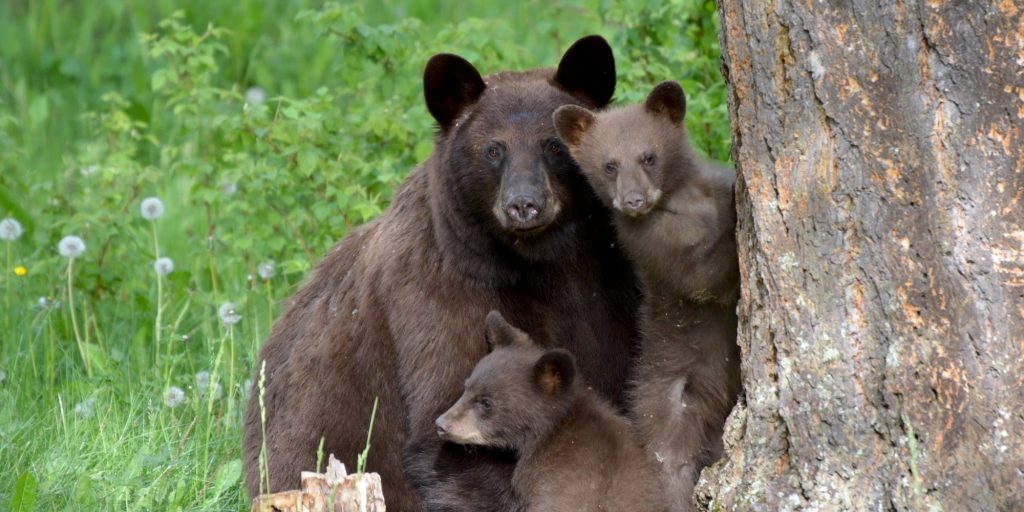
Nicholas Hunter/Shutterstock
- A beachgoer earlier this month spotted a family of bears swimming in Lake Tahoe near tourists.
- But video of the encounter reveals how the growing dangers of the climate crisis are taking effect.
- As the planet's warming creates more and more extreme weather, humans aren't the only ones fleeing.
- See more stories on Insider's business page.
Video showing a family of bears trudging past beachgoers and straight into Lake Tahoe may look cute, but it's actually terrifying.
The video, captured earlier this month by local beachgoer Heather Blummer, shows a hefty bear with three cubs marching right past a crowd of humans on the beach. The bear family was likely trying to cool down: It reached 91 degrees Fahrenheit in that area of Lake Tahoe on Sunday, July 11, when the video was taken. A record-breaking heat wave was sweeping the area.
-ABC News (@ABC) July 14, 2021
Though the fluffy mammal family may look adorable, splashing and wrestling in the water with one another, bears are wild animals and a potential danger to humans, who should never be so close to the species – especially when cubs are present.
Imogen Cancellare, a conservation biologist, tweeted about the potential dangers of getting too close to a mama bear and her cubs.
"A black bear with cubs can be VERY aggressive, and what she will/won't tolerate isn't always clear," Cancellare said. "If she hurts someone, the state will euthanize her, and her cubs will either starve or (if caught) spend their life in cages."
It's not just about humans and bears, either. Changes in species range patterns, changes in human land use, and the unpredictability of climate events will further exacerbate the challenges, according to the World Conservation Congress.
As the planet's warming creates increasingly extreme weather, humans aren't the only ones fleeing. Climate refugees come in all shapes and sizes. In Russia, polar bears have invaded towns in search of food as their ice-sheet habitats melt. In Australia, wounded and frightened animals have rushed out of gargantuan brush fires and into residential areas. In drought-stricken Zimbabwe, elephants have raided human communities for food and water.
Heat waves can be particularly dangerous for animals and humans
Heat waves can make both humans and animals desperate, and scientists are confident climate change is making heat waves worse.
Since the beginning of June, a series of record-setting heat waves have rolled over the US West, Southwest, and Pacific Northwest. In particular, the late-June heat dome that sat over Washington and Oregon for days has astonished scientists.
Earlier this week, scientists determined the blazing heat wave killed more than one billion sea creatures, as marine life in the Pacific Northwest was cooked to death in the unrelenting sun. Scientists expect the number of dead to increase as their count continues.
Experts told Scientific American losing such substantial numbers of creatures could destabilize parts of the ocean, eventually resulting in a decline in biodiversity.
This type of extreme heat is becoming more common and more severe as humans burn fossil fuels, like coal and oil, that release heat-trapping gases into the atmosphere. The planet is warming, and that's bringing more extreme heat events.
Heat waves are occuring three times more often and lasting about a day longer than they did in the 1960s, according to records of such waves across 50 US cities. They also start earlier and continue later into the year. The heat-wave season is 47 days longer than it was in the 1960s.
But even that understanding may be outdated. The research center World Weather Attribution found the July Pacific-Northwest heat wave would have been virtually impossible without the global warming caused by human activities.
"This is something that nobody saw coming, that nobody thought possible. And we feel that we do not understand heat waves as well as we thought we did," Geert Jan van Oldenborgh, who co-authored that study, said in a press briefing.
"We are much less certain about how the climate affects heat waves than we were two weeks ago."
